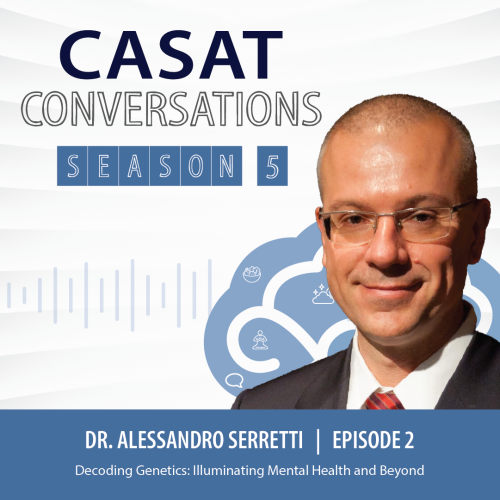The Complex Web of Genetics and Mental Health: Unraveling the Mystery
Mental health’s intricate nature has led researchers to explore various avenues in search of answers on how to assess and treat the mind. One of the most intriguing fields in this quest is the study of genetics. Geneticists are working to understand how our genes influence our mental well-being and how genetic variations influence drug metabolism.
Before we can unravel the connection between genetics and mental health, it’s essential to have a basic understanding of genetics. Genes are the segments of DNA that contain the instructions for building and maintaining the human body. They determine our physical traits, such as eye color, height, and hair texture. In addition, genes can be thought of as the building blocks for shaping our mental and emotional characteristics.
For many years, researchers have debated whether nature or nurture has a more significant bearing on our mental health. Today, we know both are true. While environment and upbringing undoubtedly influence our psychological well-being, genetics also plays a crucial role. Both nature and nurture interact and intersect in complex ways to shape our mental health outcomes.
Let’s take a look at some important findings to date that are relevant to the topic of genes and mental health.

Hereditary Factors in Mental Health Disorders: Several mental health disorders are known to have a hereditary component. For example, schizophrenia, bipolar disorder, and major depressive disorder often run in families. Studies of identical twins, who share 100% of their genes, have revealed that when one twin has one of these conditions, the other twin is more likely to also have it compared to fraternal twins, who share only 50% of their genes. This suggests a strong genetic link, but it’s not a simple one-gene, one-disorder relationship. Multiple genes are believed to interact with environmental factors to increase the risk of these disorders.

The Influence of Environment on Genetics: Epigenetics is a fascinating field that studies how environmental factors can influence gene expression without altering the underlying DNA sequence. It’s like a set of switches that can turn genes on or off. Stress, trauma, and adverse childhood experiences can all leave epigenetic marks that may increase the likelihood of developing mental health conditions later in life. This concept highlights the dynamic interplay between genes and the environment and challenges the idea that our genetic destiny is fixed.

The Role of Genetic Variations: Genetic variations or mutations can also play a significant role in mental health. These mutations can affect the structure or function of certain genes, potentially increasing the risk of developing mental health disorders. For example, mutations in the serotonin transporter gene (SLC6A4) have been associated with an increased susceptibility to depression and anxiety disorders.

The Genetics of Resilience: While genetics can predispose individuals to mental health disorders, they can also play a role in resilience. Some people seem to be more resilient to life’s challenges and stressors, and genetics may contribute to this resilience. Researchers are actively studying the genes and genetic variations that could promote mental well-being and resilience, offering hope for potential interventions and treatments.

The Role of Neurotransmitters: Neurotransmitters are chemical messengers that transmit signals in the brain. They play a crucial role in regulating mood, emotions, and overall mental health. Several neurotransmitters, such as serotonin, dopamine, and norepinephrine, have been linked to various mental health disorders. Genetics can influence the production, release, and reuptake of these neurotransmitters. For example, variations in genes that code for receptors or enzymes involved in serotonin regulation have been associated with an increased risk of mood disorders like depression.

Genetic Testing: Advancements in genetic testing have opened up new possibilities for understanding an individual’s genetic predisposition to mental health conditions. Genetic tests can identify specific variations in an individual’s DNA that may be associated with an increased risk of certain mental health disorders. However, according to Dr. Alessandro Serretti, it’s important to approach genetic testing for mental health cautiously. The field is still in its infancy, and there are many ethical and privacy concerns to address. Moreover, a positive genetic result doesn’t guarantee the development of a mental health disorder, as environmental factors also play a significant role.
Let’s now take a brief look at how environmental factors influence mental health. While genetics provide a blueprint, environmental factors shape the final outcome. It’s the interplay between genetics and environment that ultimately determines an individual’s mental health. Here are some environmental factors that can impact mental well-being:
- Adverse childhood experiences, such as abuse, neglect, or trauma, can have a profound impact on mental health. They can leave lasting emotional scars and increase the risk of mental health disorders in adulthood.
- Strong social support networks and positive relationships can act as protective factors for mental health. On the other hand, social isolation and loneliness can contribute to the development of mental health issues.
- Chronic stress can take a toll on mental health. High stress levels can trigger or exacerbate conditions like anxiety and depression.
- Diet, exercise, and overall lifestyle choices can influence mental health.
- Poor nutrition and a sedentary lifestyle can contribute to the development of mental health disorders.
The relationship between genetics and mental health is complex and multifaceted. While genetics can predispose individuals to certain mental health disorders, they do not determine one’s destiny. Environmental factors, including childhood experiences, social support, and lifestyle choices, play a significant role in shaping mental well-being. Understanding the interplay between genetics and environment is essential for developing effective prevention and treatment strategies for mental health disorders. As research in this field continues to advance, we may gain deeper insights into the genetic factors that contribute to resilience and mental well-being, offering hope for more personalized approaches to mental health care.
References
Centers for Disease Control and Prevention. (2021). Genetics basics. Centers for Disease Control and Prevention. https://www.cdc.gov/genomics/about/basics.htm#:~:text=How%20We%20Get%20Our%20Genes,each%20pair%20from%20their%20father.
Cross-Disorder Group of the Psychiatric Genomics Consortium (2013). Identification of risk loci with shared effects on five major psychiatric disorders: a genome-wide analysis. Lancet (London, England), 381(9875), 1371–1379. https://doi.org/10.1016/S0140-6736(12)62129-1
Luddington, N. S., Mandadapu, A., Husk, M., & El-Mallakh, R. S. (2009). Clinical implications of genetic variation in the serotonin transporter promoter region: a review. Primary care companion to the Journal of clinical psychiatry, 11(3), 93–102. https://doi.org/10.4088/pcc.08r00656
National Institute of Mental Health. (2020). Looking at my genes: what can they tell me about my mental health? National Institute of Mental Health (NIMH). https://www.nimh.nih.gov/health/publications/looking-at-my-genes
Sravanti L. (2017). Nurture the nature. Indian Journal of psychiatry, 59(3), 385. https://doi.org/10.4103/psychiatry.IndianJPsychiatry_341
Blog Post Tags:
Related Blog Posts
Related Learning Labs
Related Resources
.
- Buscar Tratamiento de Calidad para Trastornos de uso de Sustancia (Finding Quality Treatment for Substance Use Disorders Spanish Version)
- Finding Quality Treatment for Substance Use Disorders
- Focus On Prevention: Strategies and Programs to Prevent Substance Use
- Monthly Variation in Substance Use Initiation Among Full-Time College Students
- The National Survey on Drug Use and Health (NSDUH) Report: Monthly Variation in Substance Use Initiation Among Adolescents
 Listen to
Listen to 






